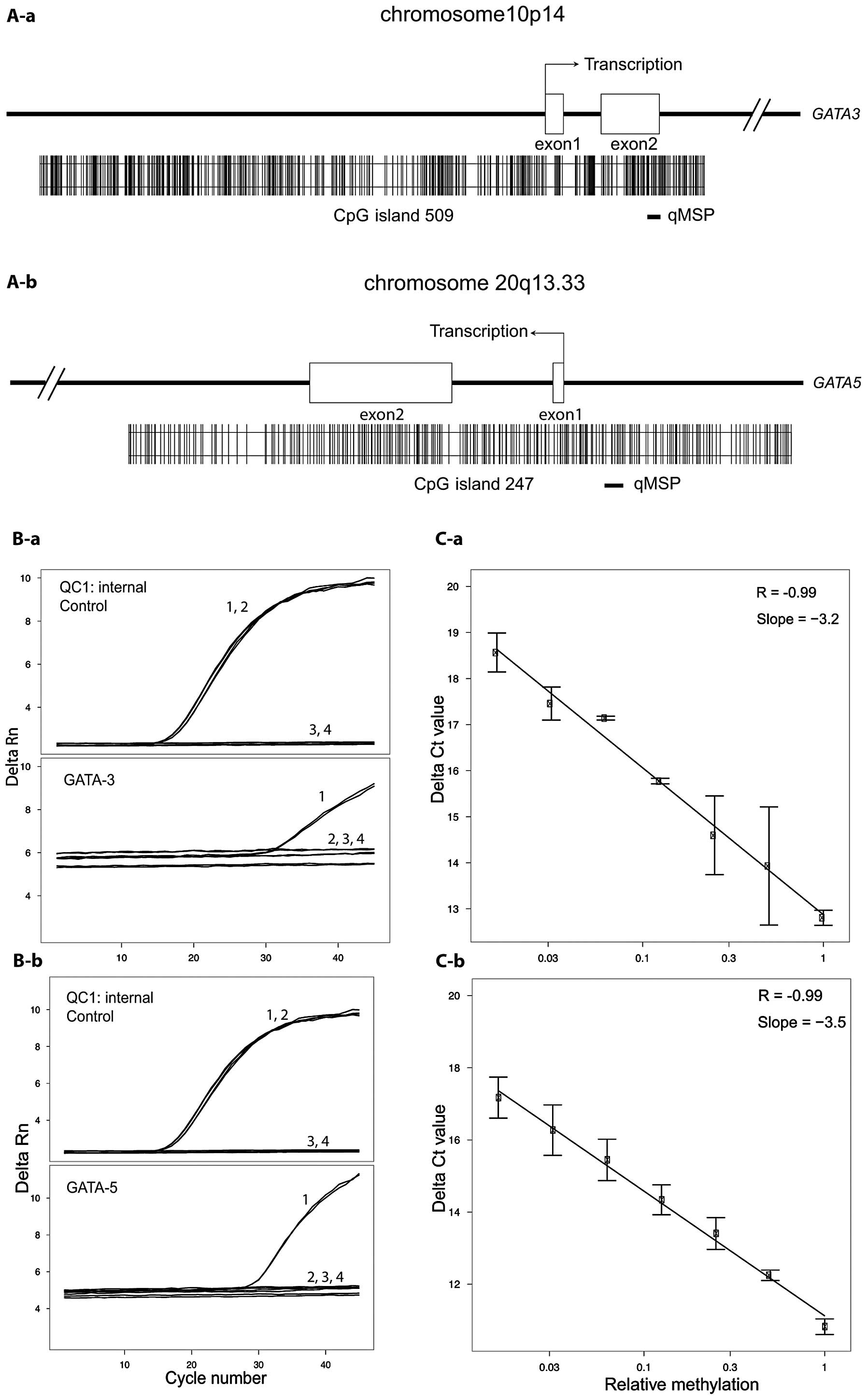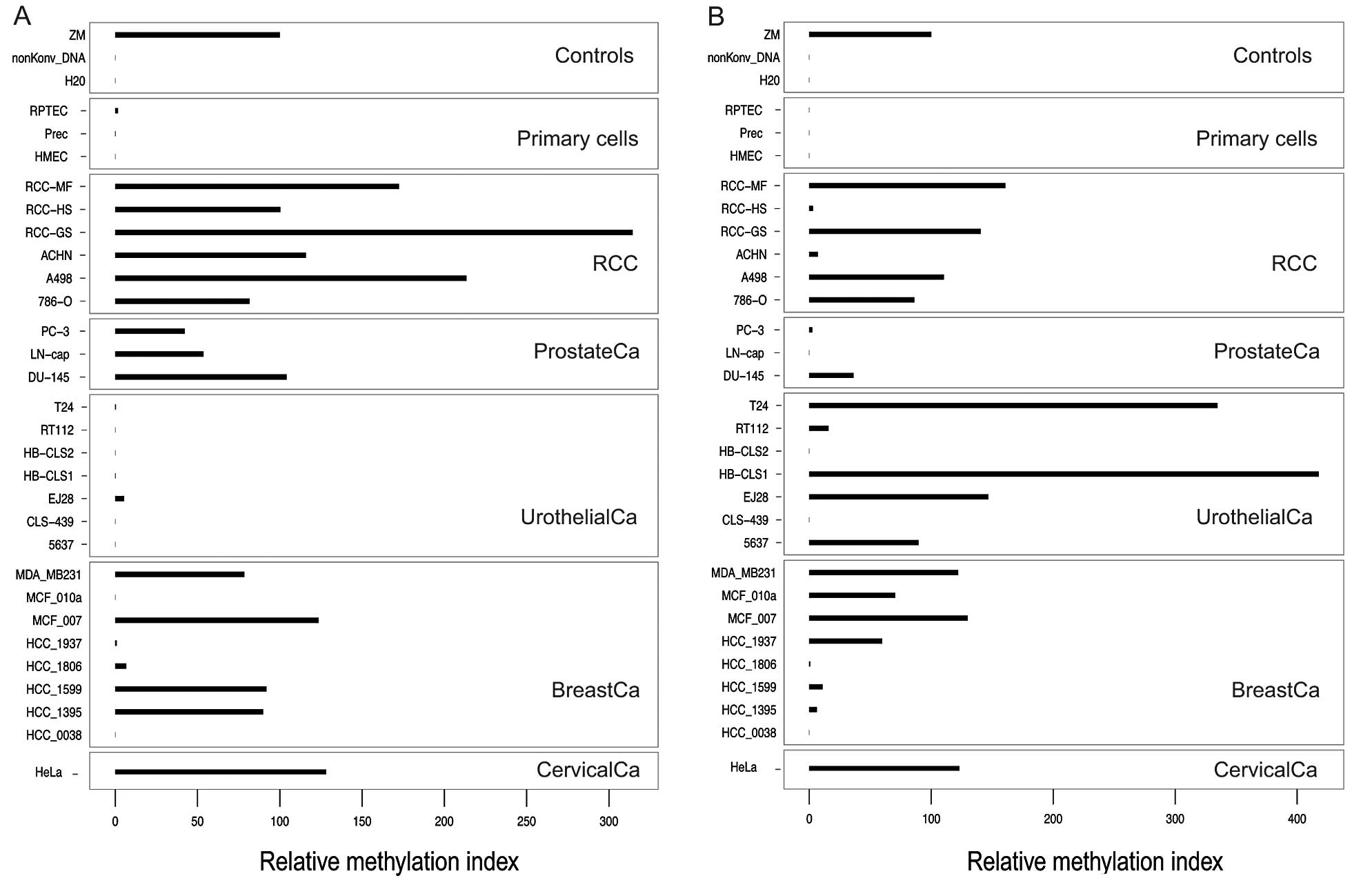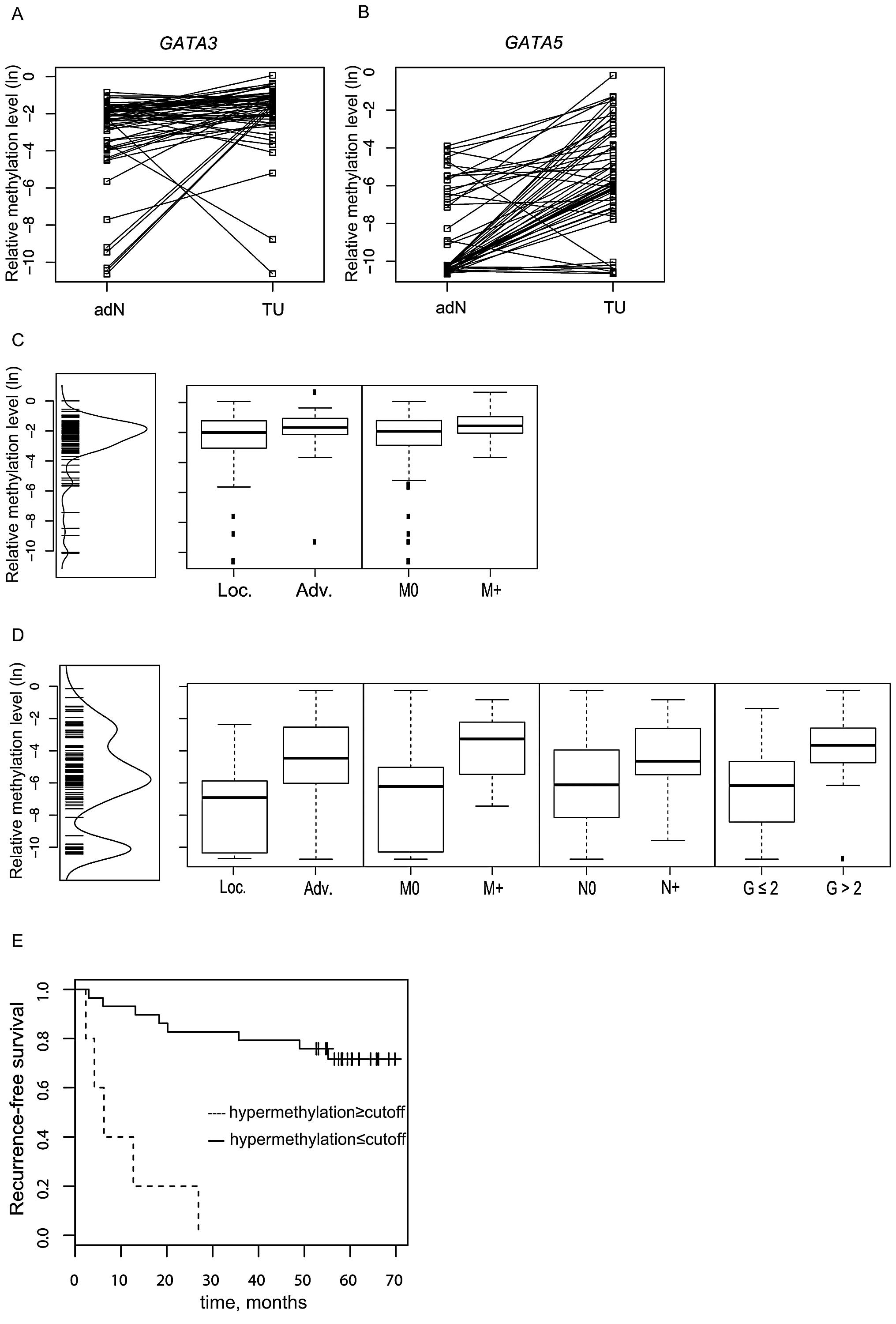Spandidos Publications style
Peters I, Gebauer K, Dubrowinskaja N, Atschekzei F, Kramer MW, Hennenlotter J, Tezval H, Abbas M, Scherer R, Merseburger AS, Merseburger AS, et al: GATA5 CpG island hypermethylation is an independent predictor for poor clinical outcome in renal cell carcinoma. Oncol Rep 31: 1523-1530, 2014.
APA
Peters, I., Gebauer, K., Dubrowinskaja, N., Atschekzei, F., Kramer, M.W., Hennenlotter, J. ... Serth, J. (2014). GATA5 CpG island hypermethylation is an independent predictor for poor clinical outcome in renal cell carcinoma. Oncology Reports, 31, 1523-1530. https://doi.org/10.3892/or.2014.3030
MLA
Peters, I., Gebauer, K., Dubrowinskaja, N., Atschekzei, F., Kramer, M. W., Hennenlotter, J., Tezval, H., Abbas, M., Scherer, R., Merseburger, A. S., Stenzl, A., Kuczyk, M. A., Serth, J."GATA5 CpG island hypermethylation is an independent predictor for poor clinical outcome in renal cell carcinoma". Oncology Reports 31.4 (2014): 1523-1530.
Chicago
Peters, I., Gebauer, K., Dubrowinskaja, N., Atschekzei, F., Kramer, M. W., Hennenlotter, J., Tezval, H., Abbas, M., Scherer, R., Merseburger, A. S., Stenzl, A., Kuczyk, M. A., Serth, J."GATA5 CpG island hypermethylation is an independent predictor for poor clinical outcome in renal cell carcinoma". Oncology Reports 31, no. 4 (2014): 1523-1530. https://doi.org/10.3892/or.2014.3030

















